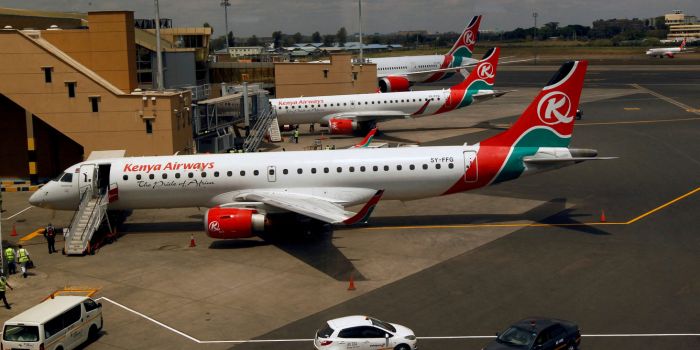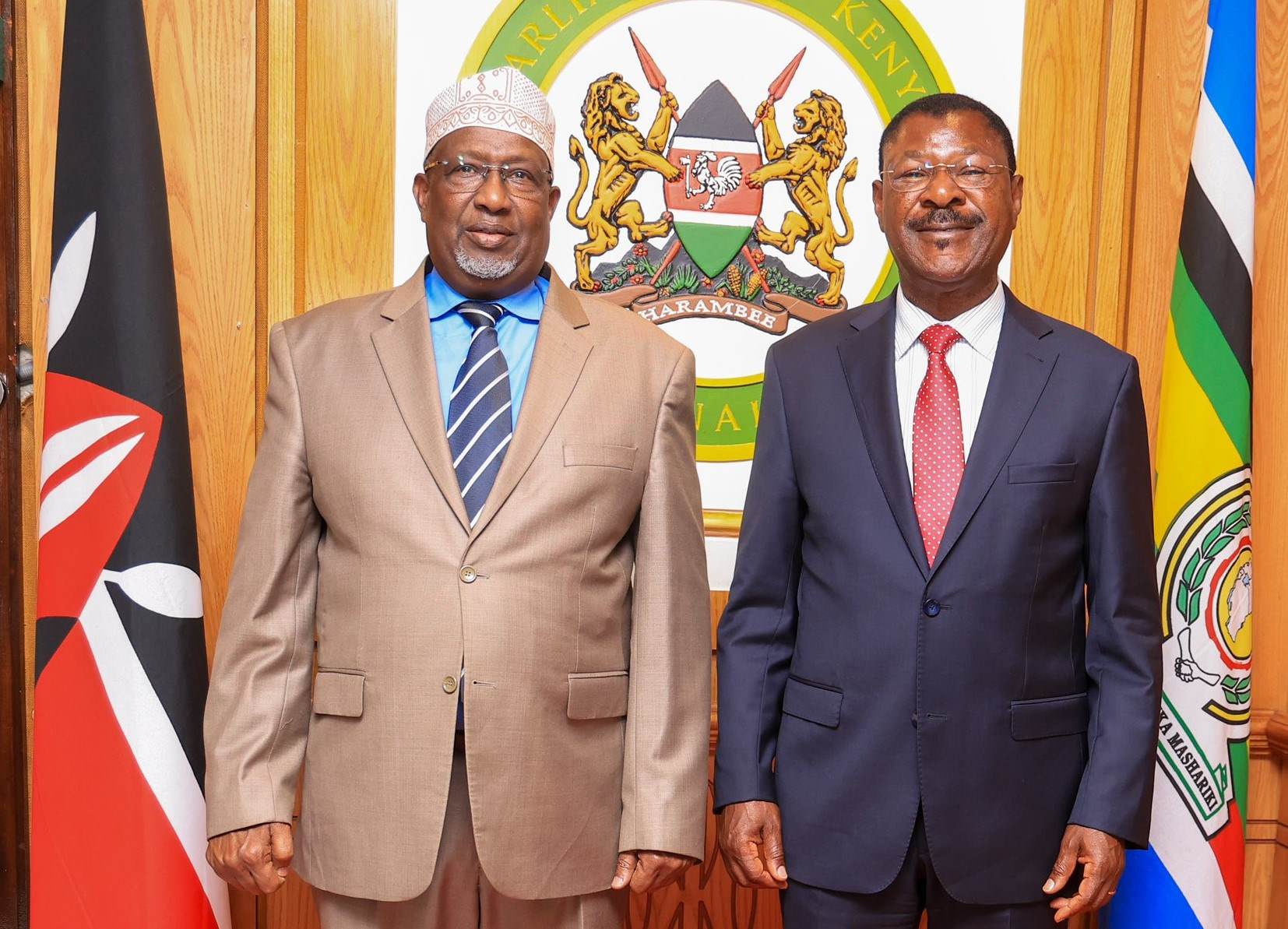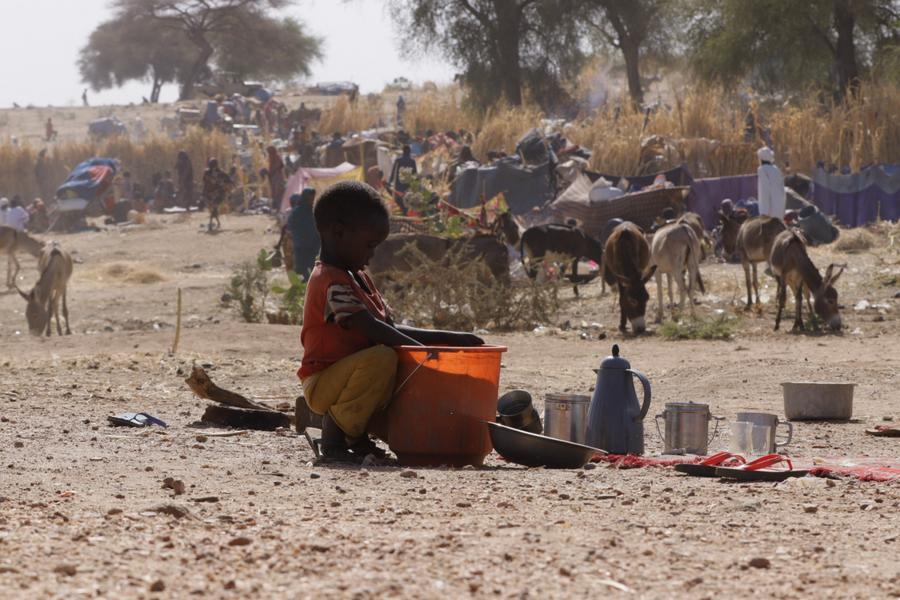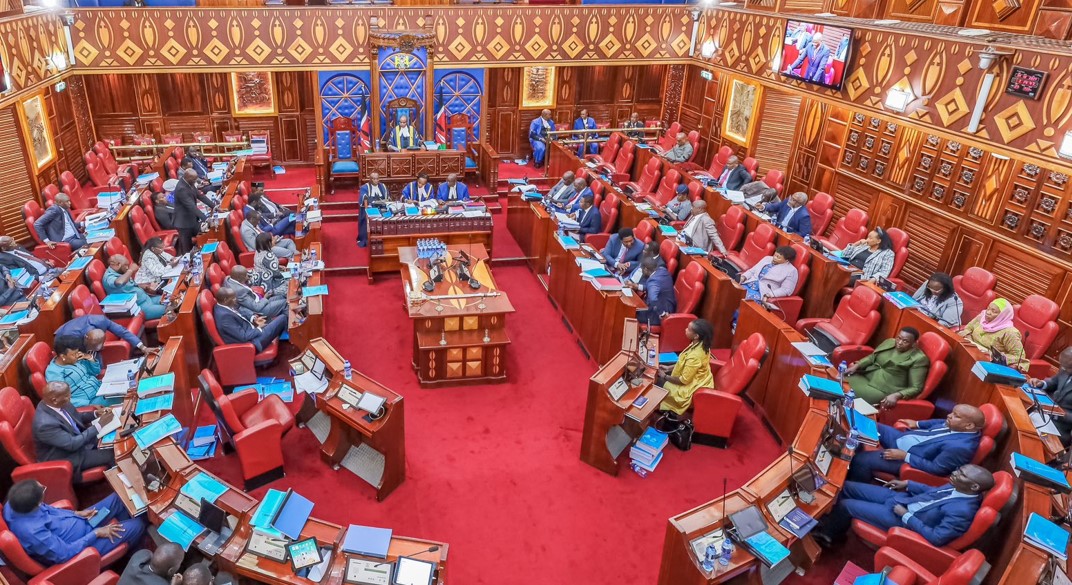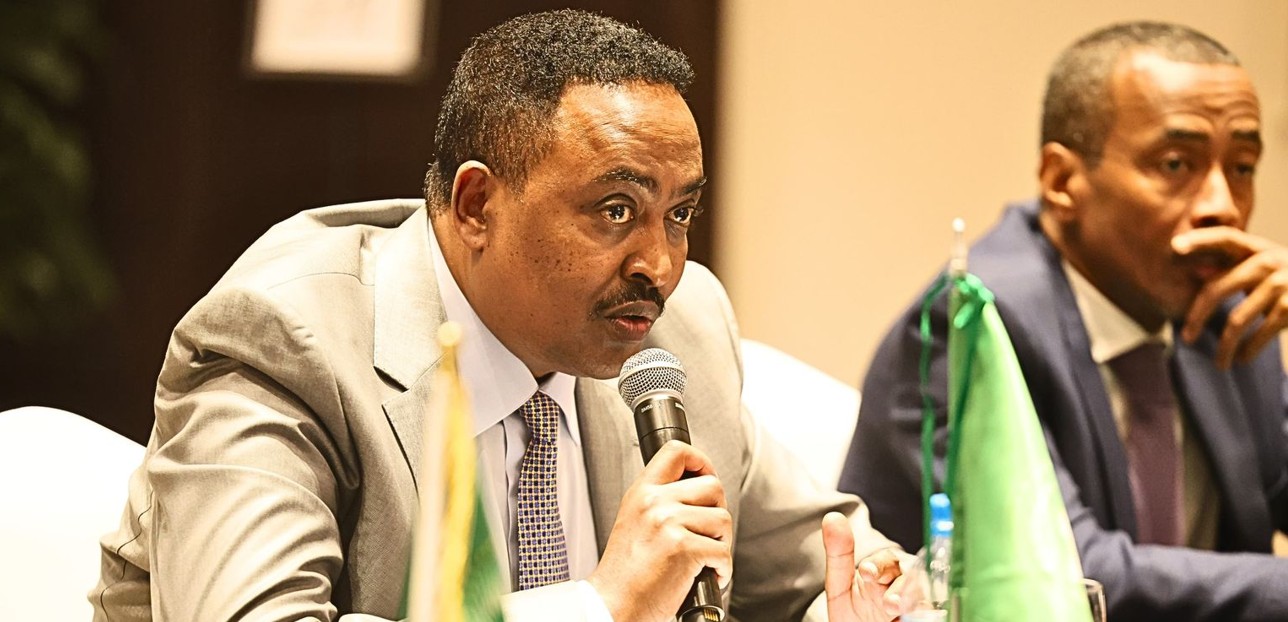Hope rises in Thika’s Kiandutu slum as long-neglected community sees historic transformation
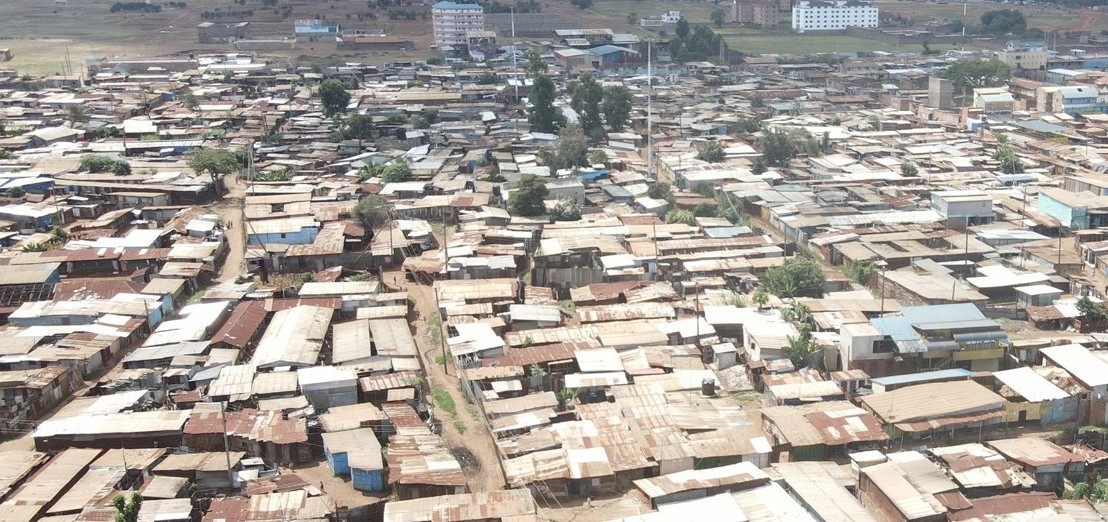
From its beginnings in the 1960s as a makeshift settlement for migrant laborers, Kiandutu is now transforming into a thriving community with land titles, modern infrastructure, and renewed hope for generations of families.
In the shadow of Thika town's factories and sprawling farms lies Kiandutu, an informal settlement that began forming in the 1960s as a haven for rural migrants seeking work and opportunity.
Decades later, it has grown into one of the country’s largest slums outside Nairobi, its narrow lanes and crowded homes holding stories of resilience, ambition and a longing for transformation.
More To Read
- Thika bus park tussle: Kiambu County breathes easy as court halts eviction order
- Police launch manhunt after rifles stolen in armoury break-in at Thika patrol base
- Thika awaits Senate verdict on city status push
- Kiambu MCAs approve Thika's elevation to city status, report heads to Senate
- Lamu's Mokowe Town to benefit from Sh400 million facelift
- Gatundu MP Gabriel Kagombe released on cash bail of Sh1 million
The land that became Kiandutu was once part of the Anthena Farmers' Society. When the society subdivided its holdings, a portion was set aside for people without formal homes, most of them labourers drawn to Thika’s growing industrial sector. This early group laid the foundation for today’s Kiandutu settlement.
The first settlers were mainly migrant labourers and squatters who travelled from distant parts of the country, many unable to afford formal housing in established areas like Ofafa or Section 9 in Thika town.
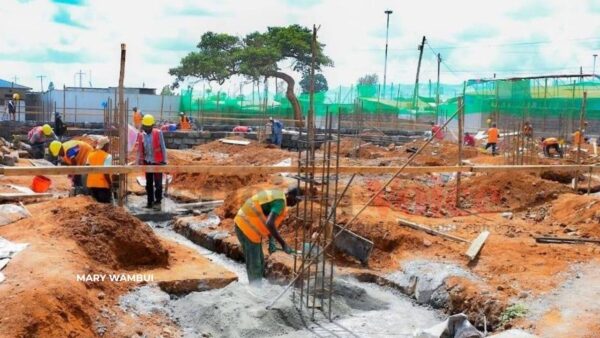 Construction underway for Kiandutu’s new market, set to provide organised, safe, and modern trading space for residents and small businesses. (Photo: Mary Wambui)
Construction underway for Kiandutu’s new market, set to provide organised, safe, and modern trading space for residents and small businesses. (Photo: Mary Wambui)
Thika’s burgeoning industries
Drawn by the promise of jobs in Thika’s burgeoning industries, they arrived with little more than hope, raising makeshift polythene shelters on open land that offered them a chance at survival and a fresh start.
Life in Kiandutu was extremely difficult. Basic amenities were scarce, and security remained a persistent challenge.
Yet, despite these hardships, hope and aspirations slowly took root. Families worked tirelessly to provide for their children, and neighbours relied on one another in times of need.
"Life in Kiandutu has never been easy. For years, we lived without clean water, proper toilets, roads, or even electricity. Security has always been a struggle. But even with all these challenges, this community never lost hope. Kiandutu is where we learned to dream, to support one another, and to believe that a better tomorrow is possible," recalls Anthony Kimani, a Kiandutu resident.
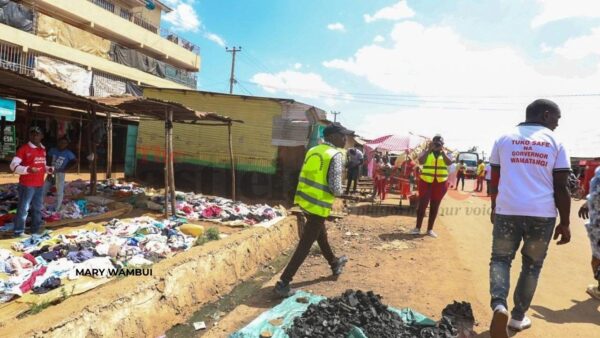 Small businesses line the bustling streets of Kiandutu, reflecting the community’s resilience, entrepreneurial spirit, and drive for a better future. (Photo: Mary Wambui)
Small businesses line the bustling streets of Kiandutu, reflecting the community’s resilience, entrepreneurial spirit, and drive for a better future. (Photo: Mary Wambui)
Land titling programme
It was these harsh living conditions and the lack of formal, decent, and affordable housing that prompted the Kiambu County government, in collaboration with the National government’s Kenya Informal Settlements Improvement Project (KISIP), to launch a land titling programme aimed at bringing structure to the settlement.
Under the tenure regularisation programme, Kiandutu is now fully surveyed, mapped, and guided by a newly prepared Part Development Plan (PDP), adopted by the Kiambu County Assembly. The next step is the preparation of title deeds by the Ministry of Lands.
Once completed, approximately 4,500 title deeds will be issued, marking a historic step toward security of tenure, dignity, and long-term transformation for thousands of families.
Pauline Ndung'u, a resident and community chairperson, expressed confidence that the community is on the brink of life-changing progress.
Uplift lives
She said residents are eagerly awaiting their title deeds, which she believes will completely uplift their lives.
"With a title deed, we can confidently invest in permanent houses and business structures because we will know the land truly belongs to us. The document will also allow us to apply for loans using the land as collateral, helping us grow our businesses and improve our livelihoods," she said.
The title deeds are also expected to increase land value, opening doors to more financial opportunities.
"Having a title deed will make us feel recognised and respected in society. It will also greatly reduce the daily land disputes we face as community leaders. This means development can happen smoothly and peacefully, and we will live without fear of eviction because the land will legally be ours. This peace of mind alone will allow families to focus on building their future," she added.
As land tenure is being secured, Kiandutu is undergoing another quiet revolution, with emerging developments reshaping life in both visible and unseen ways.
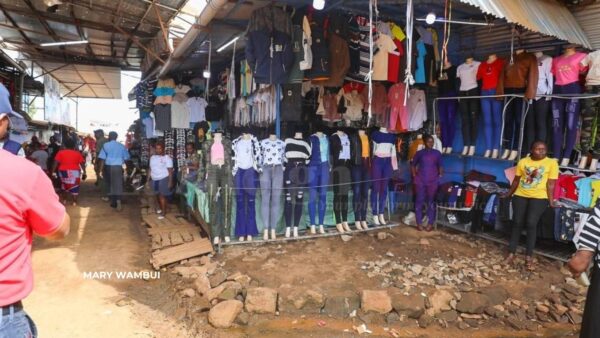 Clothes traders wait for customers along a busy Kiandutu street, embodying the community’s resilience and entrepreneurial spirit. (Photo: Mary Wambui)
Clothes traders wait for customers along a busy Kiandutu street, embodying the community’s resilience and entrepreneurial spirit. (Photo: Mary Wambui)
New market
A new market is under construction on land that was reserved for public utilities during the KISIP mapping exercise. Once complete, it will provide a safe, organised, and modern trading space, empowering small businesses, boosting household incomes, and strengthening Thika’s economic vibrancy.
Thika Municipal Manager, Gathii Kanyi, confirmed that other major infrastructure works are also in progress. These include a new drainage system connecting different sections of the settlement to reduce flooding, improve hygiene, and create a cleaner living environment. So far, 3.5 kilometres of drainage have been completed.
Stormwater and sewer drainage lines are also taking shape, providing long-awaited relief during the rainy seasons.
The Thika Water and Sewerage Company (THIWASCO), in collaboration with the county government, is rolling out water connections across the settlement, including community kiosks to ensure residents without piped water can access clean water.
Improving road networks
Meanwhile, the county and key partners are improving road networks to enhance mobility, ease transport, and expand business opportunities, while installing street lighting to improve security and extend business hours.
Waste management interventions are also underway, including community cleanups, improved collection points, and support for youth and women’s groups through empowerment initiatives and involvement in settlement planning and maintenance activities.
County KISIP Coordinator, Julias Mwololo, expressed optimism about the programme’s transformative impact.
"Once completed, this long-neglected settlement will be completely transformed into a thriving, organised estate where residents can finally take pride in their homes and community," Mwololo stated.
Some residents are already envisioning a new identity for their community, proposing to rename Kiandutu as 'Diaspora Estate' once title deeds are in hand—a symbolic gesture signalling ownership, pride, and hope for the future.
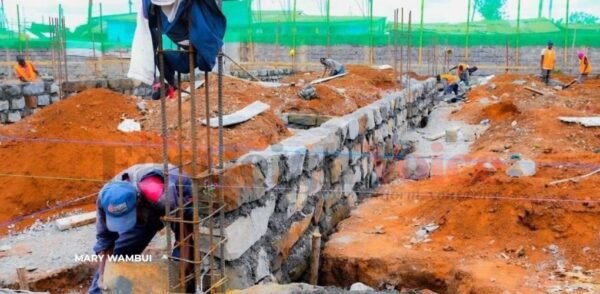 The upcoming Kiandutu market is set to provide a safe, organised, and modern space, boosting opportunities for local traders and the wider community. (Photo: Mary Wambui)
The upcoming Kiandutu market is set to provide a safe, organised, and modern space, boosting opportunities for local traders and the wider community. (Photo: Mary Wambui)
Safer, vibrant settlement
With upgraded infrastructure, modern drainage systems, clean water, improved roads, and vibrant community spaces, Kiandutu is steadily evolving into a healthier, safer, and economically vibrant settlement.
The transformation will empower residents not only to shape their neighbourhood but also to envision a future that aligns with Thika town’s goal of becoming a smart city—a status recently approved by the local county assembly and now awaiting Senate approval.
Kiambu Governor Kimani Wamatangi highlighted Thika’s strategic position along the Trans-Africa Highway, linking Southern and Northern Africa and serving as a gateway to Mt. Kenya and neighbouring regions in the Horn of Africa.
Thika City
Once elevated to city status, Thika is expected to gain enhanced international visibility, attracting increased funding for development projects, social programs, and other initiatives.
Groundwork is already underway, with national and county governments investing over Sh10 billion in infrastructure, water, health, education, trade, sports, and other sectors to meet city requirements.
Thika is well-connected via a superhighway to Nairobi, a railway line, and a transit highway to northern Kenya, and the Kiambu County government has begun rehabilitating tarmac roads, installing streetlights, and improving drainage in the central business district.
Works include re-carpeting roads such as Kisii Road and the Thika bus park, installing solar streetlights, and upgrading drainage at the Garissa Highway junction (Gatitu).
Across all five wards, other infrastructure projects are ongoing, including the gazetting of 324 acres in Gatuanyaga as an Economic Processing Zone (EPZ), expected to unlock development in Thika’s eastern corridor.
Top Stories Today



